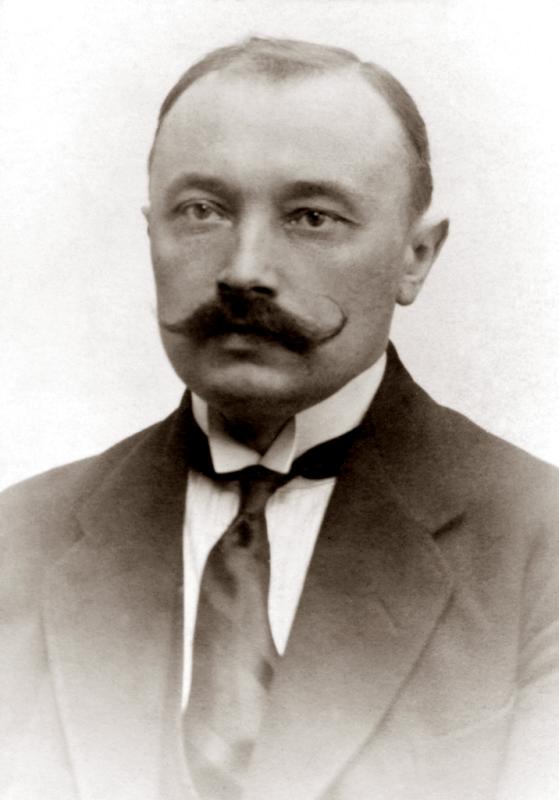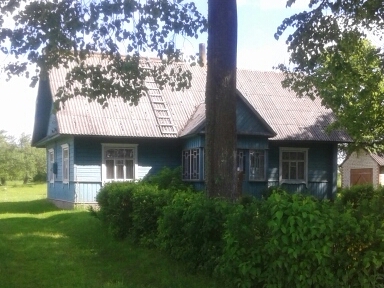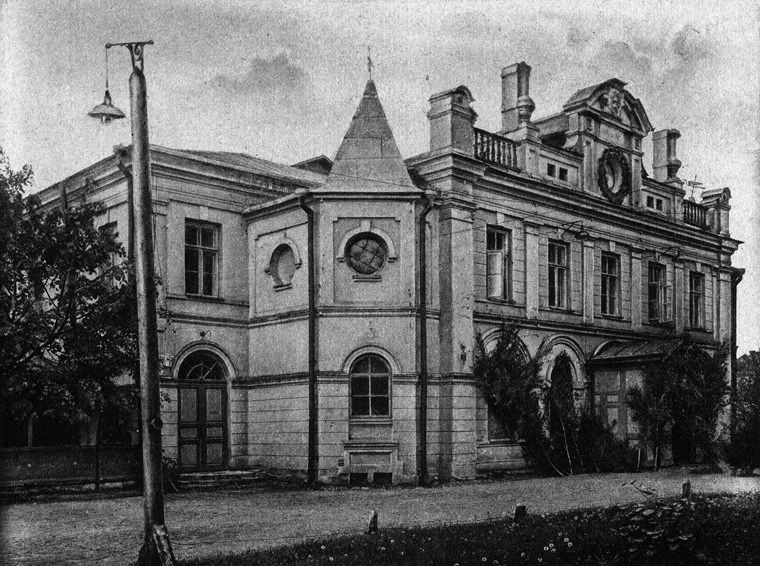|
1926 Lithuanian Coup D'état
The 1926 Lithuanian coup d'état ( Lithuanian: ) was a military coup d'état in Lithuania that resulted in the replacement of the democratically elected government with a Nationalist regime led by Antanas Smetona. The coup took place on 17 December 1926 and was largely organized by the military; Smetona's role remains the subject of debate. The coup brought the Lithuanian Nationalist Union, the most conservative party at the time, to power. Previously it had been a fairly new and insignificant nationalistic party. By 1926, its membership reached about 2,000 and it had won only three seats in the parliamentary elections. The Lithuanian Christian Democratic Party, the largest party in the Seimas at the time, collaborated with the military and provided constitutional legitimacy to the coup, but accepted no major posts in the new government and withdrew in May 1927. After the military handed power over to the civilian government, it ceased playing a direct role in political life. ... [...More Info...] [...Related Items...] OR: [Wikipedia] [Google] [Baidu] |
Antanas Smetona 2
Antanas is a Lithuanian masculine given name derived from Antonius that is equivalent to Anthony in Lithuania. It may refer to: *Antanas Andrijauskas (born 1948), Lithuanian philosopher *Antanas Bagdonavičius (born 1938), Lithuanian rower and Olympic medalist *Antanas Baranauskas (1835–1902), Lithuanian poet, mathematician and catholic bishop * Antanas Ričardas Druvė (1867-1919), Lithuanian military officer and colonel in Russian military *Antanas Gustaitis (1898-1941), Lithuanian military general, aviator and aerospace engineer *Antanas Guoga (Tony G) (born 1973), Lithuanian-born Australian businessman and professional poker player * Antanas Janauskas (born 1937), Lithuanian animation film director, designer and writer * Antanas Jaroševičius (1870–1956), Lithuanian painter *Antanas Juška (1819–1880), Lithuanian Roman Catholic pastor, lexicographer, folklorist, and musicologist * Antanas Karoblis (1940–2007), Lithuanian politician *Antanas Kavaliauskas (born 1984), Lit ... [...More Info...] [...Related Items...] OR: [Wikipedia] [Google] [Baidu] |
Vilnius
Vilnius ( , ; see also other names) is the capital and largest city of Lithuania, with a population of 592,389 (according to the state register) or 625,107 (according to the municipality of Vilnius). The population of Vilnius's functional urban area, which stretches beyond the city limits, is estimated at 718,507 (as of 2020), while according to the Vilnius territorial health insurance fund, there were 753,875 permanent inhabitants as of November 2022 in Vilnius city and Vilnius district municipalities combined. Vilnius is situated in southeastern Lithuania and is the second-largest city in the Baltic states, but according to the Bank of Latvia is expected to become the largest before 2025. It is the seat of Lithuania's national government and the Vilnius District Municipality. Vilnius is known for the architecture in its Old Town, declared a UNESCO World Heritage Site in 1994. The city was noted for its multicultural population already in the time of the Polish–Lithuanian ... [...More Info...] [...Related Items...] OR: [Wikipedia] [Google] [Baidu] |
Mykolas Sleževičius
Mykolas Sleževičius (21 February 1882 – 11 November 1939) was a Lithuanian lawyer, political and cultural figure, and journalist. One of the most influential figures in inter-war Lithuania, he served as the prime minister of Lithuania on three occasions. Taking the helm of the government at a difficult time in 1918 and again in 1919, Sleževičius has been credited with preparing Lithuania for the fights to come and for laying the foundations of the fledgling state. Sleževičius was elected to the Lithuanian parliament, initially the Constituent Assembly, later the Seimas, on four occasions. In 1926, as a representative of the Lithuanian Popular Peasants' Union, Sleževičius became the prime minister for a third time. His government introduced important changes aimed at normalizing the situation in Lithuania, but the reforms faced resistance from the Catholic clergy, military officers and the parliamentary opposition. The resistance culminated in a military coup d'état ... [...More Info...] [...Related Items...] OR: [Wikipedia] [Google] [Baidu] |
Second Seimas
The Second Seimas of Lithuania was the second parliament (Seimas) democratically elected in Lithuania after it declared independence on February 16, 1918. It was the only regular interwar Seimas which completed its full three-year term from May 1923 to March 1926. History The First Seimas, elected in fall 1922, was in virtual deadlock as no party or coalition could gain a majority. President Aleksandras Stulginskis was forced to dissolve it on March 12, 1923. The elections to a new Seimas took place on May 12 and May 13, 1923. The Christian Democrats gained two additional seats which were enough to give them a slim majority. At first they tried to form a coalition with the Lithuanian Peasant Popular Union. The Populists demanded lifting the martial law (introduced during the Lithuanian Wars of Independence), prohibiting political campaigning in churches, and three portfolios in the new cabinet of ministers. The Christian Democrats were not inclined to satisfy the demands and ... [...More Info...] [...Related Items...] OR: [Wikipedia] [Google] [Baidu] |
Kazys Grinius
Kazys Grinius (, 17 December 18664 June 1950) was the third President of Lithuania, and held that office from 7 June 1926 to 17 December 1926. Previously, he had served as the fifth Prime Minister of Lithuania, from 19 June 1920 until his resignation on 18 January 1922. He was posthumously awarded with the Lithuanian Life Saving Cross for saving people during the Holocaust and was recognised as a Righteous Among the Nations in 2016. Early life Grinius was born in Selema, near Marijampolė, in the Augustów Governorate of Congress Poland, which was part of the Russian Empire. He studied medicine at the University of Moscow and became a physician. As a young man, he became involved in Lithuanian political activities, and was persecuted by the Tsarist authorities. In 1896, he was one of the founders of the Lithuanian Democratic Party (LDP) and Lithuanian Popular Peasants' Union (LVLS) party. That same year he married Joana Pavalkytė. For some time they lived in Virbalis. In 1899, ... [...More Info...] [...Related Items...] OR: [Wikipedia] [Google] [Baidu] |
Treaty Of Brest-Litovsk
The Treaty of Brest-Litovsk (also known as the Treaty of Brest in Russia) was a separate peace treaty signed on 3 March 1918 between Russia and the Central Powers (Germany, Austria-Hungary, Bulgaria, and the Ottoman Empire), that ended Russia's participation in World War I. The treaty was signed at German-controlled Brest-Litovsk ( pl, Brześć Litewski; since 1945, Brest, now in modern Belarus), after two months of negotiations. The treaty was agreed upon by the Russians to stop further invasion. As a result of the treaty, Soviet Russia defaulted on all of Imperial Russia's commitments to the Allies and eleven nations became independent in eastern Europe and western Asia. Under the treaty, Russia lost all of Ukraine and most of Belarus, as well as its three Baltic republics of Lithuania, Latvia, and Estonia (so-called Baltic governorates in the Russian Empire), and these three regions became German vassal states under German princelings. Russia also ceded its province of K ... [...More Info...] [...Related Items...] OR: [Wikipedia] [Google] [Baidu] |
Augustinas Voldemaras
Augustinas Voldemaras (16 April 1883 – 16 May 1942) was a Lithuanian nationalist political figure. He briefly served as the country's first prime minister in 1918 and continued serving as the minister of foreign affairs until 1920, representing the fledgling Lithuanian state at the Versailles Peace Conference and the League of Nations. After some time in academia, Voldemaras returned to politics in 1926, when he was elected to the Third Seimas. Dissatisfied with the left-wing government of President Kazys Grinius, Voldemaras and fellow nationalist Antanas Smetona supported the 1926 Lithuanian coup d'état, military coup d'état in December 1926 and he was appointed as the prime minister for a second time. A brilliant orator, Voldemaras represented the radical wing of the Lithuanian Nationalist Union that was increasingly critical of the more moderate policies of President Smetona. Smetona had Voldemaras removed from office in September 1929 and exiled to Zarasai. Voldemaras was ... [...More Info...] [...Related Items...] OR: [Wikipedia] [Google] [Baidu] |
Parliamentary System
A parliamentary system, or parliamentarian democracy, is a system of democratic governance of a state (or subordinate entity) where the executive derives its democratic legitimacy from its ability to command the support ("confidence") of the legislature, typically a parliament, to which it is accountable. In a parliamentary system, the head of state is usually a person distinct from the head of government. This is in contrast to a presidential system, where the head of state often is also the head of government and, most importantly, where the executive does not derive its democratic legitimacy from the legislature. Countries with parliamentary systems may be constitutional monarchies, where a monarch is the head of state while the head of government is almost always a member of parliament, or parliamentary republics, where a mostly ceremonial president is the head of state while the head of government is regularly from the legislature. In a few parliamentary republi ... [...More Info...] [...Related Items...] OR: [Wikipedia] [Google] [Baidu] |
Lituanus
''Lituanus'' is an English language quarterly journal dedicated to Lithuanian and Baltic languages, linguistics, political science, arts, history, literature, and related topics. It is published by the non-profit Lituanus Foundation, Inc., and has a worldwide circulation of about 3,000 copies per issue. The first issue was published in 1954 in Chicago, Illinois. Many of the back issues are available free of charge on its website. Its ISSN number is . ''Lituanus'' is abstracted in two internationally recognized abstract services: MLA (Modern Language Association) and IPSA ( International Political Science Association). Over the last fifty years, its most frequent editor has been Professor (now Emeritus) Antanas Klimas of the University of Rochester. The journal has featured articles by Czesław Miłosz, Tomas Venclova, Vytautas Kavolis, Jurgis Baltrušaitis Jurgis Baltrušaitis (May 2, 1873 – January 3, 1944) was a Lithuanian symbolist poet and translator, who wrote his work ... [...More Info...] [...Related Items...] OR: [Wikipedia] [Google] [Baidu] |
Unicameral
Unicameralism (from ''uni''- "one" + Latin ''camera'' "chamber") is a type of legislature, which consists of one house or assembly, that legislates and votes as one. Unicameral legislatures exist when there is no widely perceived need for multicameralism ( two or more chambers). Many multicameral legislatures were created to give separate voices to different sectors of society. Multiple houses allowed, for example, for a guaranteed representation of different social classes (as in the Parliament of the United Kingdom or the French States-General). Sometimes, as in New Zealand and Denmark, unicameralism comes about through the abolition of one of two bicameral chambers, or, as in Sweden, through the merger of the two chambers into a single one, while in others a second chamber has never existed from the beginning. Rationale for unicameralism and criticism The principal advantage of a unicameral system is more efficient lawmaking, as the legislative process is simpler and there ... [...More Info...] [...Related Items...] OR: [Wikipedia] [Google] [Baidu] |
First Seimas
First Seimas of Lithuania was the first parliament (Seimas) democratically elected in Lithuania after it declared independence on February 16, 1918. History The elections took place on October 10–11, 1922 to replace the Constituent Assembly, which adopted the final constitution on August 1, 1922. The Seimas elected Aleksandras Stulginskis as the President of Lithuania and Ernestas Galvanauskas, as the new Prime Minister, was entrusted to form a new cabinet of ministers. However, no coalition could muster a majority and the Seimas was in a deadlock: Galvanauskas formed two cabinets, and both got 38 votes for and against. As the Seimas could not continue in such manner, it was dissolved on March 12, 1923. New elections were held in May. The Seimas was faced with two major international issues: negotiation over the Vilnius Region and the Klaipėda Region. On November 20, 1922 the Seimas authorized Klaipėda Revolt, which started in January. Klaipėda became autonomous region o ... [...More Info...] [...Related Items...] OR: [Wikipedia] [Google] [Baidu] |
Constituent Assembly Of Lithuania
The Constituent Assembly of Lithuania ( lt, Steigiamasis Seimas) was the first parliament of the independent state of Lithuania to be elected in a direct, democratic, general, secret election. The Assembly assumed its duties on 15 May 1920 and was disbanded in October 1922. Legal grounds Following the last Partition of the Polish-Lithuanian Commonwealth in 1795, Lithuania was annexed by and became part of the Russian Empire. On 21 September 1917, Vilnius played host to the Lithuanian Conference which resolved that, to lay groundwork for the independent Lithuania and regulate its relations with the neighbours, a Constituent Assembly, elected under the principles of democracy by all of its residents, had to be convened in Vilnius. The resolutions of the Conference were to be implemented by an executive body: the Lithuanian Council of 20 members (to become the Council of the State of Lithuania as of 11 July 1918). It was this Council that adopted the Act of Independence on 16 ... [...More Info...] [...Related Items...] OR: [Wikipedia] [Google] [Baidu] |


.jpg)


